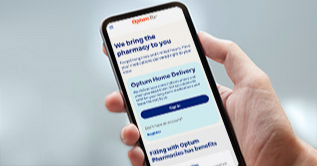Gastroenterology and hepatology FAQ
Conditions we check and care for include:
- Abdominal (belly) pain
- Anal and rectal problems
- Anemia (iron deficiencies)
- Barrett’s esophagus
- Cirrhosis
- Colon (large intestine) cancer
- Colon polyps
- Diarrhea and constipation
- Pancreatic disease
- Diverticulosis
- Esophagus disorders
- Gallstones
- Heartburn/reflux disease (gastroesophageal reflux disease, also known as GERD)
- Hemorrhoids
- Hepatitis A, B and C
- Inflammatory bowel diseases (IBD) such as Crohn’s disease and ulcerative colitis
- Intestinal bleeding
- Intestinal motility disorders
- Irritable bowel syndrome (IBS)
- Liver diseases (autoimmune, alcohol and fatty liver)
- Pancreatitis
- Pediatric digestive disorders
- Proctitis
- Swallowing disorders
- Ulcer (open sore) conditions
Common procedures and care our physicians may provide include:
- Capsule endoscopy
- Colonoscopy (an exam of the inside of the large intestine that uses a flexible tube with a lens at the end)
- Colon polyp removal
- CT and MRI enterography
- Endoscopic retrograde cholangiopancreatography (ERCP)
- Endoscopic ultrasound (EUS)
- Esophageal dilation
- Iron infusion (adding iron directly into the blood)
- Push enteroscopy
- Stents for the gastrointestinal tract
- Upper endoscopy
- Variceal banding
Appendicitis is an inflammation of your appendix.
The most common symptom of appendicitis is dull pain near the belly button or the upper abdomen (belly). The pain becomes sharp as it moves to the lower right abdomen. Other symptoms can include:
- Loss of appetite
- Abdominal swelling
- Fever between 99℉ and 102℉
Appendicitis is a medical emergency. It almost always requires prompt surgery to remove the appendix. If you are having this kind of pain and believe it’s a medical emergency, call 911.
If an inflamed appendix is not taken care of, it will eventually burst or perforate (get holes in it). This spills infectious materials into the abdominal cavity. This can lead to peritonitis, which is a serious inflammation of the abdominal cavity’s lining (the peritoneum). That can be fatal unless it is treated quickly with strong antibiotics.
Celiac disease is a digestive disorder that hurts the small intestine.
Symptoms
- Digestive discomfort after eating gluten (a protein found in wheat, barley and rye). Not all people with celiac disease have symptoms. Digestive discomfort is most common among children.
- The disease can cause long-term digestive problems and keep you from getting the nutrients you need.
Care
- Gastroenterologists care for celiac disease by prescribing a gluten-free diet. Most people with celiac disease who eat gluten-free feel much better.
- A dietitian can teach you how to stay away from gluten while following a healthy and wholesome diet.
Crohn’s disease is a chronic (or long-term) disease that hurts your digestive tract.
Symptoms
The most common symptoms of Crohn’s disease are:
- Diarrhea
- Cramping and pain in your abdomen
- Weight loss
Care
Doctors care for Crohn’s disease with medicines, bowel rest and surgery. They focus on decreasing the inflammation in your intestines and preventing flare-ups of your symptoms. The goal is to keep you in remission (period of time when a disease is not active).
Irritable bowel syndrome is a common disorder of the large intestine that affects 10–15% of adults in the United States. It causes symptoms without any signs of damage or disease.
Symptoms
IBS usually presents with a combination of symptoms including:
- Repeated pain in your abdomen
- Changes in your bowel movements (diarrhea, constipation or both)
Care
Doctors may care for your IBS by suggesting changes to what you eat. Changes in your diet may include:
- Eating more fiber
- Staying away from gluten
- Following a special diet called the low-FODMAP diet (FODMAPs are types of carbohydrates in foods)
Doctors may guide you to other lifestyle changes, medicines, probiotics and mental health therapies, too.
You may have to try a combination of approaches to see what works best for you.
Your doctor can help you find the right care plan.
Lactose intolerance is caused by lactose malabsorption. This is a health problem where your small intestine makes too little lactase and you can't digest all the lactose you eat or drink. Lactose intolerance may affect your health if it keeps you from getting enough nutrients, such as calcium and vitamin D.
Symptoms
After you have food or drinks with lactose in them (such as dairy products), you may have:
- Bloating
- Diarrhea
- Gas
- Nausea
- Pain in your belly
Care
There are ways to manage lactose intolerance. Changing your diet and limiting or avoiding foods that contain lactose can help. Some people may only need to limit lactose, while others may need to stay away from lactose completely. Using lactase products can help some people manage their symptoms.
Talk with your doctor about changing your diet. This can help manage lactose intolerance symptoms and make sure you get enough nutrients.
The American Cancer Society suggests getting a colonoscopy every 10 years from age 45 to 75. You might start earlier if you have a family history of colon cancer.
Recent studies show that colon cancer screenings in adults ages 45–49 find precancerous growths at rates similar to those in older adults. Early detection is important.
Before a colonoscopy:
- Bowel preparation: You’ll need to follow a clear liquid diet and take a prescribed laxative the night before and the morning of the procedure. This helps make sure your colon is clean for visibility.
- Medication adjustments: Some medications, especially blood thinners and diabetes drugs, may need to be paused or adjusted. Always check with your doctor.
- Fasting: No food or drink (not even water) is allowed on the day of the procedure, except for the prep solution (the laxative mixed with fluid) and a small sip of water for essential meds.
What to expect during a colonoscopy:
- Sedation: You’ll be given a sedative through an IV (into the bloodstream) to help you relax or sleep.
- The exam: A thin, flexible tube with a camera (colonoscope) is inserted through the rectum to examine the colon. It typically takes 20–45 minutes.
- Polyp removal: If polyps or abnormal (not normal) tissue are found, they may be removed and sent for biopsy (further study).
After a colonoscopy:
- Recovery: You’ll rest in a recovery area for about 30–60 minutes as the sedation wears off.
- Results: Your doctor may share early findings right away. Biopsy results take a few days.
- Aftereffects: Mild bloating, gas or cramping is normal. You’ll need someone to drive you home.
- Diet: You can usually resume eating once you're fully awake, unless your doctor says not to.
Helpful resources

Article
5 doctor-approved colonoscopy prep tips
Being prepared for this cancer-detecting procedure will help you and your doctor. Follow these helpful tips.

Article
What do I need to know about gut health?
Gut health plays a role in many of your body’s functions. Learn how an imbalance can affect your body and mind.

Article
Do you feel gassy, bloated and constipated?
If you’re feeling uncomfortable, take a look at some common causes and doctor-approved ways to feel better.
*Gastroenterology and hepatology services vary by location. Check with your doctor’s office or health plan for specific information.
Optum arranges for or provides medical and other clinical services in accordance with laws in each state it operates. Physicians or providers referenced on this website are to those who are either part of independent practices or to those medical practices managed by or owned, where permitted, by Optum. In all circumstances, physicians and other licensed professionals have complete authority for all medical decision-making and patient care. Optum does not determine or set the methods, standards, or conduct of the practice of medicine or health care provided by any of the practices or their physicians or other licensed professionals.




